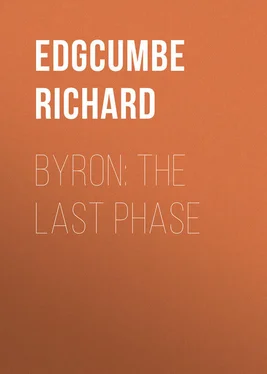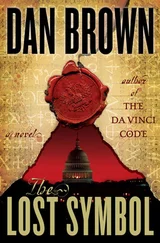Richard Edgcumbe - Byron - The Last Phase
Здесь есть возможность читать онлайн «Richard Edgcumbe - Byron - The Last Phase» — ознакомительный отрывок электронной книги совершенно бесплатно, а после прочтения отрывка купить полную версию. В некоторых случаях можно слушать аудио, скачать через торрент в формате fb2 и присутствует краткое содержание. Жанр: literature_19, Поэзия, foreign_antique, foreign_prose, foreign_poetry, Биографии и Мемуары, на английском языке. Описание произведения, (предисловие) а так же отзывы посетителей доступны на портале библиотеки ЛибКат.
- Название:Byron: The Last Phase
- Автор:
- Жанр:
- Год:неизвестен
- ISBN:нет данных
- Рейтинг книги:3 / 5. Голосов: 1
-
Избранное:Добавить в избранное
- Отзывы:
-
Ваша оценка:
- 60
- 1
- 2
- 3
- 4
- 5
Byron: The Last Phase: краткое содержание, описание и аннотация
Предлагаем к чтению аннотацию, описание, краткое содержание или предисловие (зависит от того, что написал сам автор книги «Byron: The Last Phase»). Если вы не нашли необходимую информацию о книге — напишите в комментариях, мы постараемся отыскать её.
Byron: The Last Phase — читать онлайн ознакомительный отрывок
Ниже представлен текст книги, разбитый по страницам. Система сохранения места последней прочитанной страницы, позволяет с удобством читать онлайн бесплатно книгу «Byron: The Last Phase», без необходимости каждый раз заново искать на чём Вы остановились. Поставьте закладку, и сможете в любой момент перейти на страницу, на которой закончили чтение.
Интервал:
Закладка:
‘On arriving at Vathi, we repaired to our several rooms in the worthy citizens’ houses where we were billeted, to read and meditate, and write and converse, as we might meet, indoors or out; and much profound lucubration took place among us, on the characteristics and disposition of the very eminent personage with whom we were for the time associated. Dr. Scott, the assistant-surgeon of the 8th Foot, who had heard of, though he may not have witnessed, any of the peculiarities of the great poet, accounted for them, and even for the sublimities of his poetry, by an abnormal construction or chronic derangement of the digestive organs – a theory which experience and observation of other people than poets afford many reasons to support:
‘“Is it not strange now – ten times strange – to think,
And is it not enough one’s faith to shatter,
That right or wrong direction of a drink,
A plus or minus of a yellow matter,
One half the world should elevate or sink
To bliss or woe (most commonly the latter) —
That human happiness is well-formed chyle,
And human misery redundant bile!”
‘The next morning the accounts we heard of Lord Byron were contradictory: Trelawny, who slept in the next room to him, stating that he had been writing the greater part of the night, and he alleged it was the sixteenth canto of “Don Juan”; and Dr. Bruno, who visited him at intervals, and was many hours in personal attendance at his bedside, asserting that he had been seriously ill, and had been saved only by those benedette pillule which so often had had that effect. His lordship again appeared rowing in from his bath at the Lazzaretto, a course of proceeding (bathing and boating) which caused Dr. Bruno to wring his hands and tear his hair with alarm and vexation.
‘It was, however, the day fixed for our return to Cephalonia, and, having gladly assented to the proposition to join the suite, we all mounted ponies to cross the island to a small harbour on the south side, where a boat was waiting to bear us to Santa Eufemia, a Custom-house station on the coast of Cephalonia, about half an hour’s passage from Ithaca, which we accordingly passed, and arrived at the collector’s mansion about two o’clock.
‘During the journey across the smaller island, I made a bold push, and succeeded in securing, with my small pony, the side-berth of Lord Byron’s large brown steed, and held by him in the narrow path, to the exclusion of companions better entitled to the post. His conversation was not merely free – it was familiar and intimate, as if we were schoolboys meeting after a long separation. I happened to be “up” in the “Waverley Novels,” had seen several letters of Sir Walter Scott’s about his pedigree for his baronetage, could repeat almost every one of the “Rejected Addresses,” and knew something of the London Magazine contributors, who were then in the zenith of their reputation – Hazlitt, Charles Lamb, Talfourd, Browning, Allan Cunningham, Reynolds, Darley, etc. But his lordship pointed at the higher game of Southey, Gifford (whom he all but worshipped), Jeffrey of the Edinburgh Review , John Wilson, and other Blackwoodites. He said they were all infidels, as every man has a right to be; that Edinburgh was understood to be the seat of all infidelity, and he mentioned names (Dr. Chalmers and Andrew Thomson, for examples) among the clergy as being of the category. This I never could admit. He was particularly bitter against Southey, sneered at Wordsworth, admired Thomas Campbell, classing his “Battle of the Baltic” with the very highest of lyric productions. “Nothing finer,” he said, “was ever written than —
‘“There was silence deep as death,
And the boldest held his breath
For a time.”
‘We arrived at one of the beautiful bays that encircle the island, like a wavy wreath of silver sand studded with gold and emerald in a field of liquid pearl, and embarked in the collector’s boat for the opposite shore of Santa Eufemia, where, on arrival, we were received by its courteous chief, Mr. Toole, in a sort of state – with his whole establishment, French and English, uncovered and bowing. He had had notice of the illustrious poet’s expected arrival, and had prepared one of the usual luxurious feasts in his honour – feasts which Lord Byron said “played the devil” with him, for he could not abstain when good eating was within his reach. The apartment assigned to us was small, and the table could not accommodate the whole party. There were, accordingly, small side or “children’s tables,” for such guests as might choose to be willing to take seats at them. “Ha!” said Lord Byron, “England all over – places for Tommy and Billy, and Lizzie and Molly, if there were any. Mr. – ” (addressing me), “will you be my Tommy?” – pointing to the two vacant seats at a small side-table, close to the chair of our host. Down I sat, delighted, opposite to my companion, and had a tête-à-tête dinner apart from the head-table, from which, as usual, we were profusely helped to the most recherché portions. “Verily,” said his lordship, “I cannot abstain.” His conversation, however, was directed chiefly to his host, from whom he received much local information, and had his admiration of Sir Thomas Maitland increased by some particulars of his system of government. There were no vacant apartments within the station, but we learned that quarters had been provided for us at a monastery on the hill of Samos, across the bay. Thither we were all transported at twilight, and ascended to the large venerable abode of some dozen of friars, who were prepared for our arrival and accommodation. Outside the walls of the building there were some open sarcophagi and some pieces of carved frieze and fragments of pottery.
‘I walked with his lordship and Count Gamba to examine them, speculating philosophically on their quondam contents. Something to our surprise, Lord Byron clambered over into the deepest, and lay in the bottom at full length on his back, muttering some English lines. I may have been wrong, or idly and unjustifiably curious, but I leaned over to hear what the lines might be. I found they were unconnected fragments of the scene in “Hamlet,” where he moralizes with Horatio on the skull:
‘“Imperious Cæsar, dead and turned to clay,
Might stop a hole to keep the wind away;
O, that that earth, which held the world in awe,
Should patch a wall to expel the winter’s flaw!”
‘As he sprang out and rejoined us, he said: “Hamlet, as a whole, is original; but I do not admire him to the extent of the common opinion. More than all, he requires the very best acting. Kean did not understand the part, and one could not look at him after having seen John Kemble, whose squeaking voice was lost in his noble carriage and thorough right conception of the character. Rogers told me that Kemble used to be almost always hissed in the beginning of his career. ‘The best actor on the stage,’ he said, ‘is Charles Young. His Pierre was never equalled, and never will be.’” Amid such flying desultory conversation we entered the monastery, and took coffee for lack of anything else, while our servants were preparing our beds. Lord Byron retired almost immediately from the sala . Shortly afterwards we were astonished and alarmed by the entry of Dr. Bruno, wringing his hands and tearing his hair – a practice much too frequent with him – and ejaculating: “ O Maria, santissima Maria, se non è già morto – cielo, perchè non son morto io! ” It appeared that Lord Byron was seized with violent spasms in the stomach and liver, and his brain was excited to dangerous excess, so that he would not tolerate the presence of any person in his room. He refused all medicine, and stamped and tore all his clothes and bedding like a maniac. We could hear him rattling and ejaculating. Poor Dr. Bruno stood lamenting in agony of mind, in anticipation of the most dire results if immediate relief were not obtained by powerful cathartics, but Lord Byron had expelled him from the room by main force. He now implored one or more of the company to go to his lordship and induce him, if possible, to save his life by taking the necessary medicine. Trelawny at once proceeded to the room, but soon returned, saying that it would require ten such as he to hold his lordship for a minute, adding that Lord Byron would not leave an unbroken article in the room. The doctor again essayed an entrance, but without success. The monks were becoming alarmed, and so, in truth, were all present. The doctor asked me to try to bring his lordship to reason; “he will thank you when he is well,” he said, “but get him to take this one pill, and he will be safe.” It seemed a very easy undertaking, and I went. There being no lock on the door, entry was obtained in spite of a barricade of chairs and a table within. His lordship was half undressed, standing in a far corner like a hunted animal at bay. As I looked determined to advance in spite of his imprecations of “Back! out, out of my sight! fiends, can I have no peace, no relief from this hell! Leave me, I say!” and he lifted the chair nearest to him, and hurled it direct at my head; I escaped as I best could, and returned to the sala . The matter was obviously serious, and we all counselled force and such coercive measures as might be necessary to make him swallow the curative medicine. Mr. Hamilton Browne, one of our party, now volunteered an attempt, and the silence that succeeded his entrance augured well for his success. He returned much sooner than expected, telling the doctor that he might go to sleep; Lord Byron had taken both the pills, and had lain down on my mattress and bedding, prepared for him by my servant, the only regular bed in the company, the others being trunks and portable tressels, with such softening as might be procured for the occasion. Lord Byron’s beautiful and most commodious patent portmanteau bed, with every appliance that profusion of money could provide, was mine for the night.
Читать дальшеИнтервал:
Закладка:
Похожие книги на «Byron: The Last Phase»
Представляем Вашему вниманию похожие книги на «Byron: The Last Phase» списком для выбора. Мы отобрали схожую по названию и смыслу литературу в надежде предоставить читателям больше вариантов отыскать новые, интересные, ещё непрочитанные произведения.
Обсуждение, отзывы о книге «Byron: The Last Phase» и просто собственные мнения читателей. Оставьте ваши комментарии, напишите, что Вы думаете о произведении, его смысле или главных героях. Укажите что конкретно понравилось, а что нет, и почему Вы так считаете.












